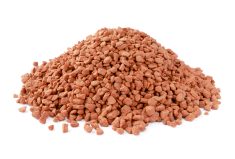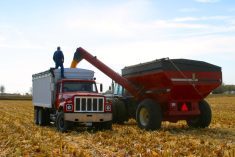A new United Nations’ report suggests just how climate change will reshape agriculture by 2050.
It says international trade will play an ever-larger role in helping to feed people in food-deficit regions as warmer temperatures and less precipitation will damage yields in many tropical areas.
Temperate areas, such as Canada and the United States, are likely to see increases in agricultural production over that time.
That situation is likely to widen the food-supply gap between developed countries and developing nations, the report states.
The report called The State of Agricultural Commodity Markets by the UN’s Food and Agriculture Organization, said international trade will play a pivotal role in moving food from areas of surplus to regions of shortages.
Read Also

Unified ag front urged for Next Policy Framework
Panelists at the Canadian Federation of Agriculture (CFA) annual general meeting say agriculture groups must stay focused and united in consultations for the recently-announced next policy framework
It says low-altitude areas of Asia, Africa and Latin America are likely to come out losers.
It said yields by 2050 in West Africa could fall as much as 2.9 per cent and by as much as 2.6 per cent in India.
Canada could see agricultural production increase 2.5 per cent by 2050 and Russian agricultural production could rise 0.9 per cent, the report says. Canada could also see its net agricultural exports increase 21.9 per cent, based on the FAO’s modelling.
The report also says that by 2050, agriculture on a global scale will have to find a way to increase production by 50 per cent while also reducing greenhouse gases.
It suggested subsidies and policies that promote adoption of climate-friendly technologies and practices, as well as hedging tools to guard against extreme weather events.















